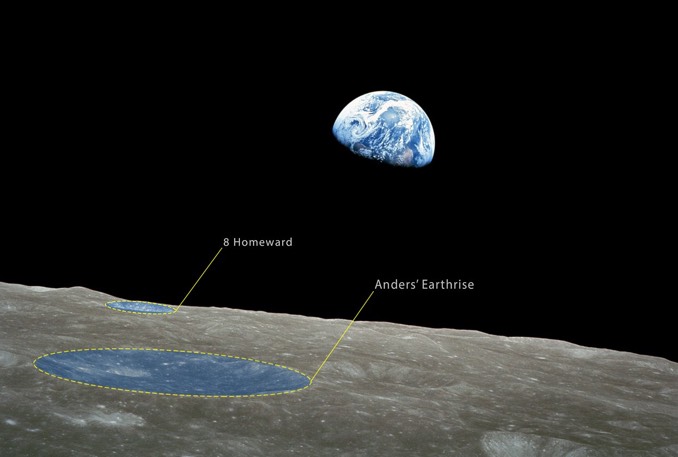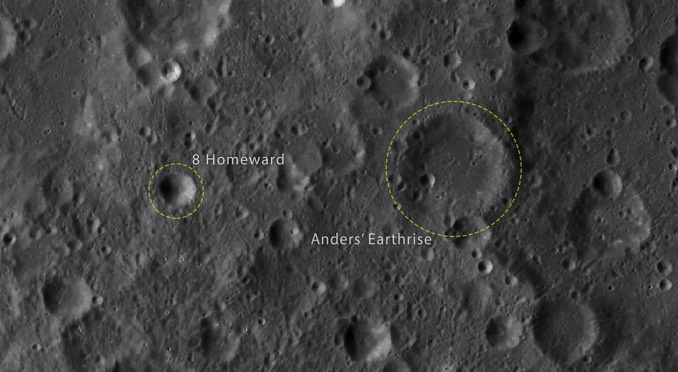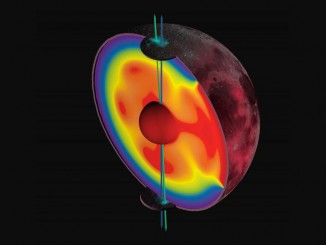
Fifty years after NASA’s Apollo 8 spacecraft carried three astronauts into orbit around the moon for the first time in 1968 – a milestone many space insiders consider one of the agency’s greatest achievements – the International Astronomical Union has named two craters to honour the historic voyage.
Named “8 Homeward” and “Anders’ Earthrise,” both craters are visible in the iconic image shot by Apollo 8 astronaut William Anders showing the blue-and-white Earth suspended in the black of space above the lunar horizon.
“This is arguably the most famous picture taken by Apollo 8,” the IAU said in a release. “It became iconic and has been credited with starting the environmental movement.”

Anders, mission commander Frank Borman and James Lovell blasted off atop a giant Saturn 5 rocket on Dec. 21, 1968, and braked into orbit around the moon that Christmas Eve, the first humans to reach the moon. After 10 orbits, the trio returned to Earth. Six-and-a-half months later, Neil Armstrong stepped onto the moon’s surface, taking “a giant leap for mankind.”
The Apollo 8 craters were named by the IAU’s Working Group for Planetary System Nomenclature, the body responsible for naming planetary features across the solar system.



